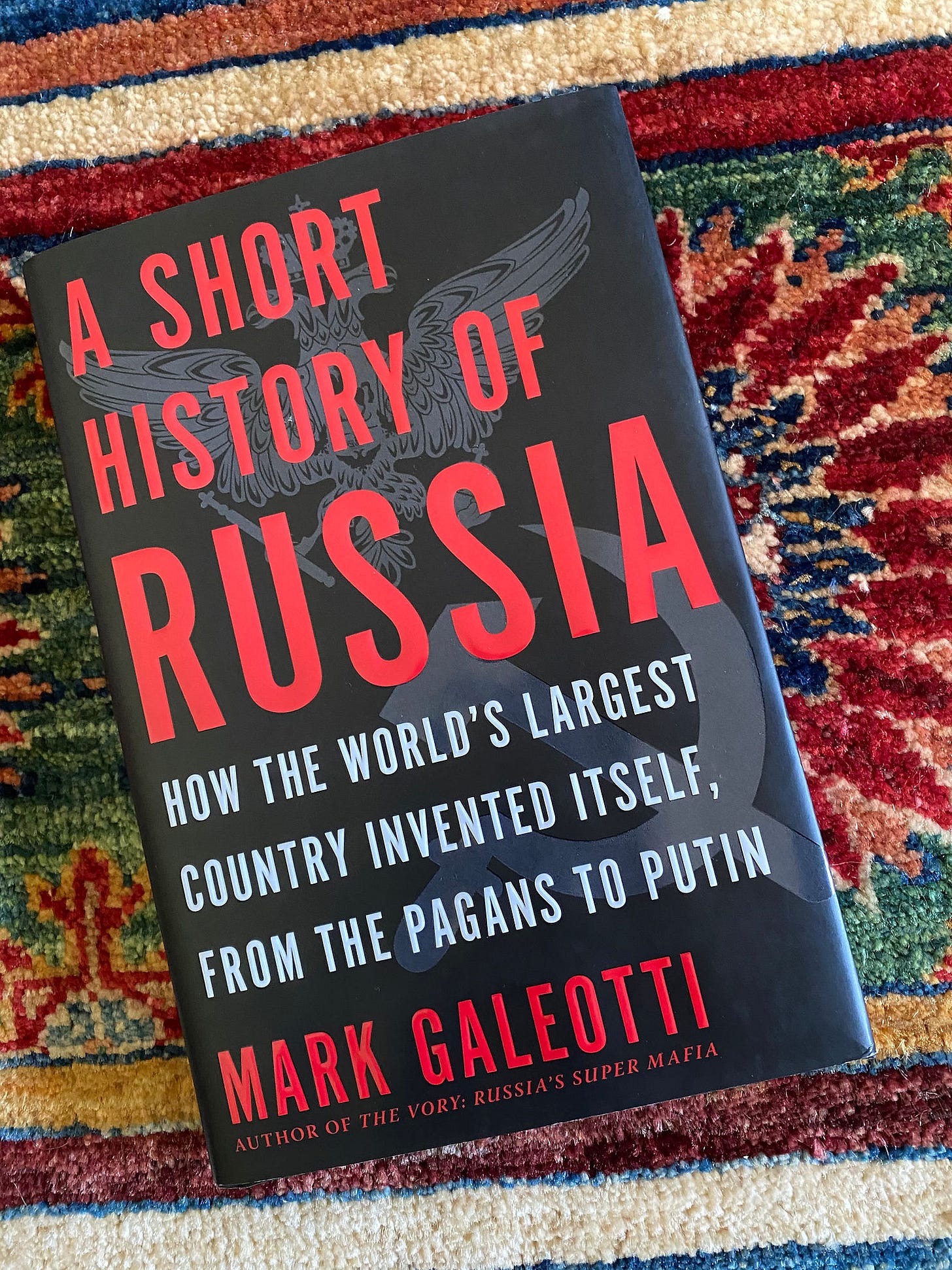Review of A SHORT HISTORY OF RUSSIA: How the World’s Largest Country Invented Itself
it is short and it punches well above its weight.
A short history of Russia! The concept itself feels like an oxymoron. When I read a positive review in the FT-Weekend, I didn’t check its length when I ordered it. I certainly did not expect a 204-page history, complete with maps, timelines and wonderful recommended reading lists. The review said it was a great start to getting a grip on this vast nation and its many terrible stories. The review promised a lively narrative and a real insight into why Putin is there and why he is so entrenched and popular. The reviewer was right on all counts and many more.
If you are curious about Russian history or want a refresher or find the Putin years compelling, buy this book. Its central premise is excellent and gives its almost ridiculous brevity the credibility it needs. Galeotti believes that Russian history is a malleable narrative, utilized by it Tsars, the Soviets and Putin to refresh myths that serve as politically expedient means to justify domestic repression, imperial expansion and the designs of those in power. Real Russian history is a tangled mess of real and fictionalized events, often rewritten to keep the power in the hands of a tiny elite whether they be the early Tsars beginning with Ivan the Great, the 300 year Romanov dynasty or the short lived horror that was the Soviet Union. Terrible wars, self-inflicted famines and other domestic barbarities are justified by her profound geographic vulnerability to external threats both East and West. Add to this unalterable reality, a nation in a chronic and dangerous identity crisis, always creating external threats to cover a systemic anxiety about her relative “backwardness” as a great power and you get wars that kill tens of millions and an empire that absorbed land the size of the state of Maryland every year for over 150 years. Whether it was Peter the Great building a Western capital on the shores of the Baltic or Catherine trying to realize the ephemeral dream of a southern warm water port or Stalin starving his peasants in order to sell their grain and thus industrialize a near third world nation in “Five Years”, the story is as awful as it is grand and dramatic. Tsars killing their sons are simply one version of Russia eating its young in order to feel secure within its vast insecure wasteland. In the end, Galeotti’s short concerto of facts and names is really, first and foremost, a geography lesson. One that is about a people who, starting as slave traders in what became Kiev, eventually created an empire in the middle of a vast, flat continent with no natural boundaries and endless numbers of trespassers.
It will take you two days to read. You will be much the wiser for it and you will realize that everything Putin has done would have been exactly what Ivan the Terrible, Catherine the Great or any one of the Tsars with the name of Nicholas or Alexander would have done. Russia is a great and terrible bear for a reason and, given its mythic and real history, will remain so.
A Short History of Russia: How the World’s Largest Country Invented Itself
by Mark Galeotti (2020)
204 pages (hardback)


